New Haven Board of Education Reflects on Perceived Success of ‘Student Voice’
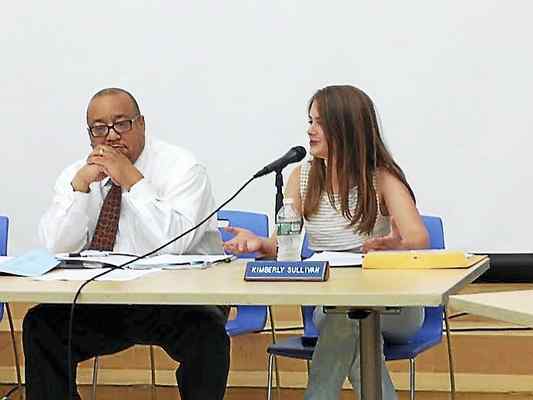
This article in the New Haven Register, discusses the impact that Kimberly Sullivan, inaugural student board member, has had on the New Haven Board of Education. Kimberly Sullivan finished her one-year term in June 2016, as the first student member on the New Haven Board of Education to graduate from high school. Sullivan, who was… Read More ›
Messages Made Simple: Communications Toolkit for Expanded Learning
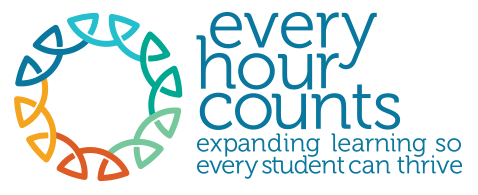
This messaging toolkit is for organizations that use expanded learning to improve opportunities and outcomes for youth. It builds on a collaborative process conducted by partners with Every Hour Counts, a nonprofit which brings together intermediary leaders and funders in the after-school field to help communities build systems to deliver high-quality expanded learning opportunities for… Read More ›
Career And Technical Education: Boom Or Bust?
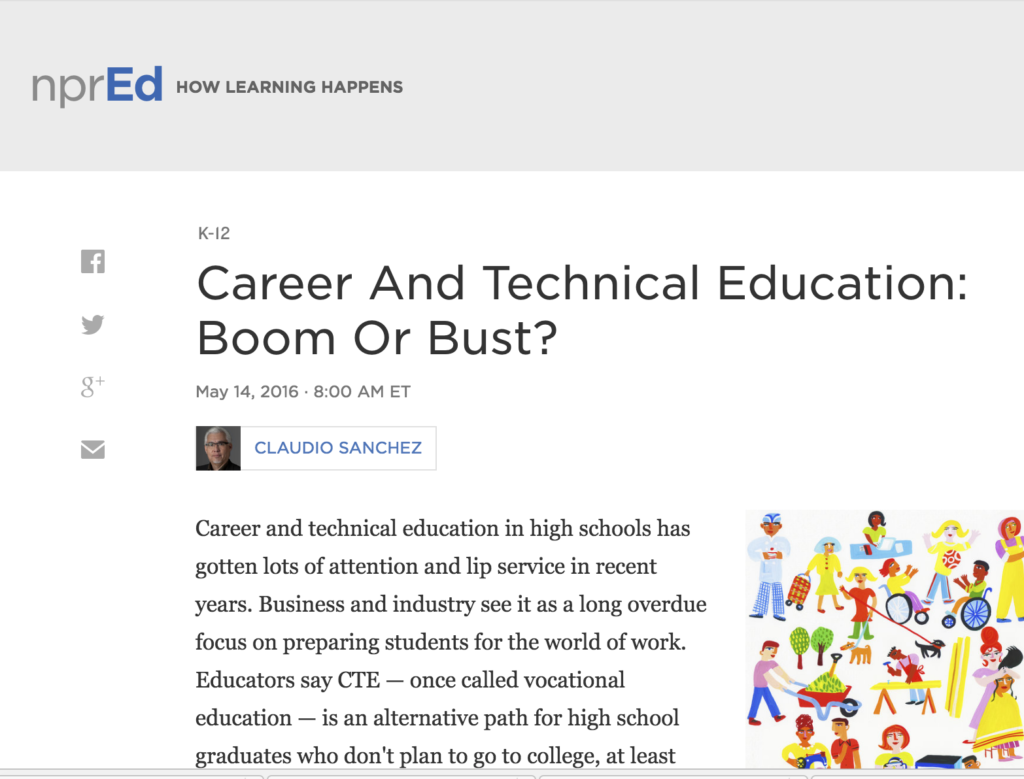
This article discusses the history of Career and Technical Education (CTE) and the current debates around it through an interview with Anthony Carnevale, Director of the Center on Education and the Workforce at Georgetown University. The interview explores the history of vocational and CTE in high schools as well as changes in the current economy and the… Read More ›
Connecting Ed and Tech: Partnering to Drive Student Outcomes
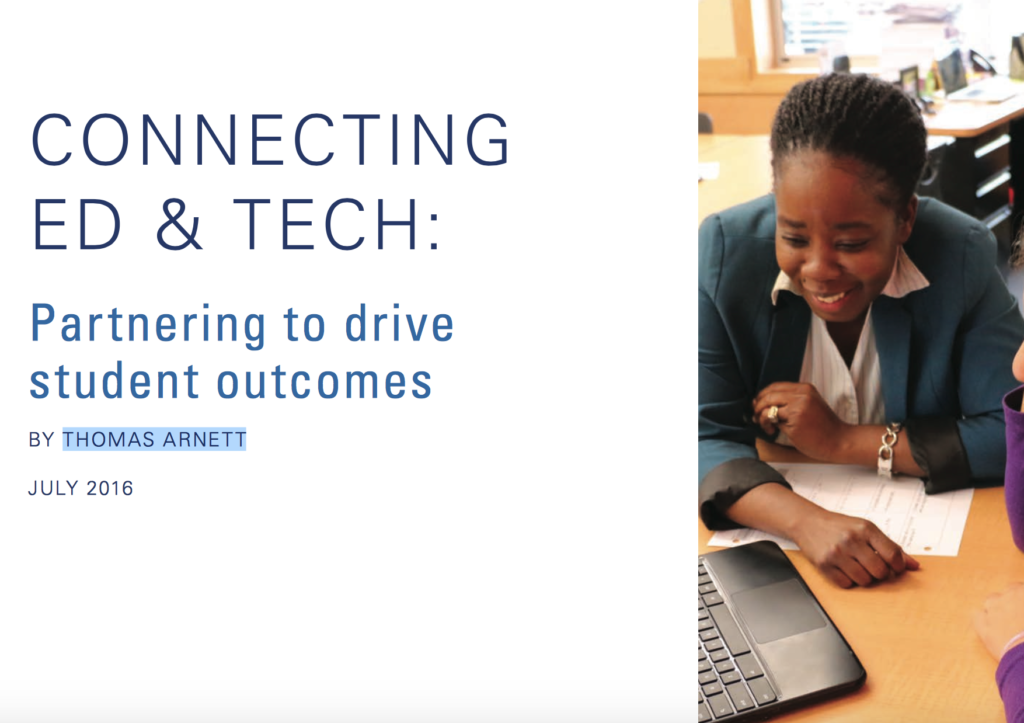
This case study describes the solution one charter school found to help scale up their personalized learning model through a unique partnership. Leadership Public Schools (LPS), a charter school management organization that operates high schools in the San Francisco Bay Area, has developed their own technology to support personalized learning which provided students with individual… Read More ›
International Institute for Restorative Practices and SaferSanerSchools
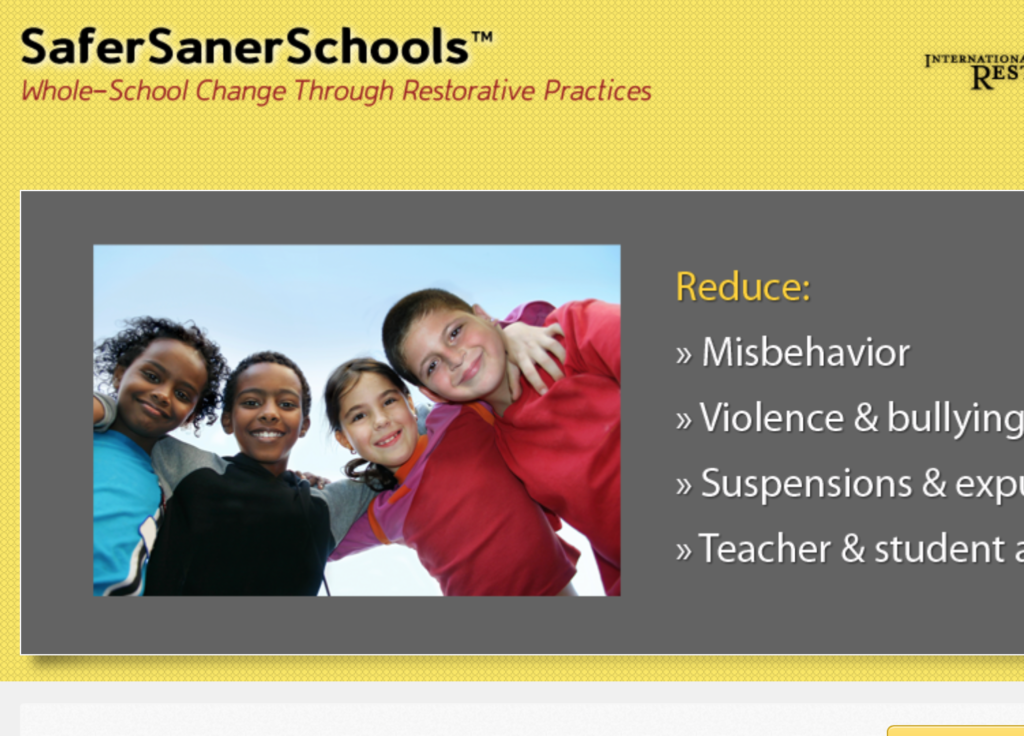
The International Institute for Restorative Practices is a graduate school that offers professional development opportunities and resources related to restorative practices. They offer a variety of symposia and conferences for graduate and continuing education credit, as well as free webinars. They also feature online learning communities and newsletters, including SaferSanerSchools News, which focuses on restorative… Read More ›
Restorative Justice in U.S. Schools: Summary Findings from Interviews with Experts
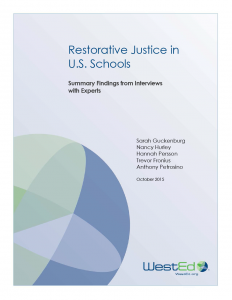
This report provides an overview of the rise and reasons for the use of restorative justice in schools and a summary of practices currently being used. It also explores the successes and challenges of these practices. The report includes a list of related, relevant reports/research on the topic. Of note are “Restorative Justice in U.S.… Read More ›
Center for Restorative Justice and the Institute for Restorative Schools
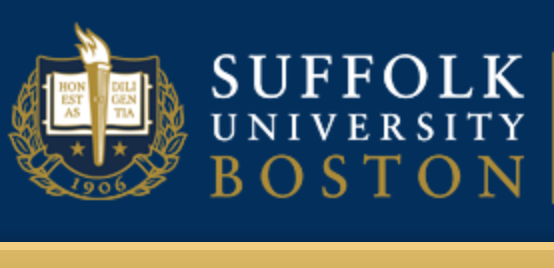
This website offers programming in restorative practices for all members of the school community – teachers, administrators, support staff, SROs, parents, and students – to assist schools in the development, implementation, and evaluation of school-based restorative practices. The Institute for Restorative Schools is based at the Center for Restorative Justice at Suffolk University in Boston, MA. Source… Read More ›
‘Restorative Justice’ A New Approach to Discipline at School
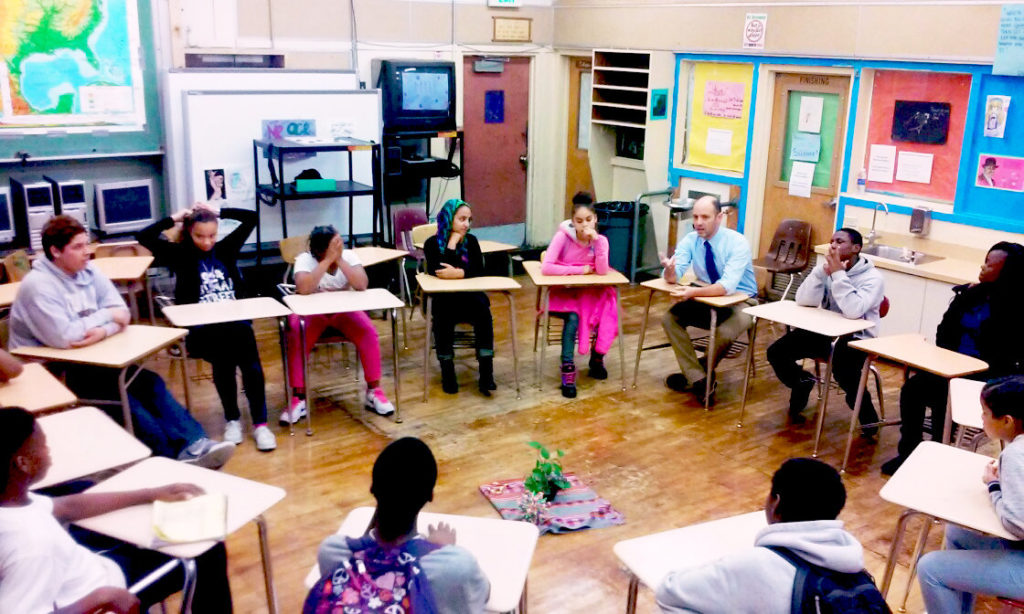
This radio report is the second of a two-part series on restorative justice, aired on NPR’s All Things Considered radio program. The reporter sits in on a harm circle held after a fight at an Oakland, California, middle school. The report features the voices of students, parents, and educators participating in the circle and gives… Read More ›
Implementing Restorative Justice: A Guide for Schools
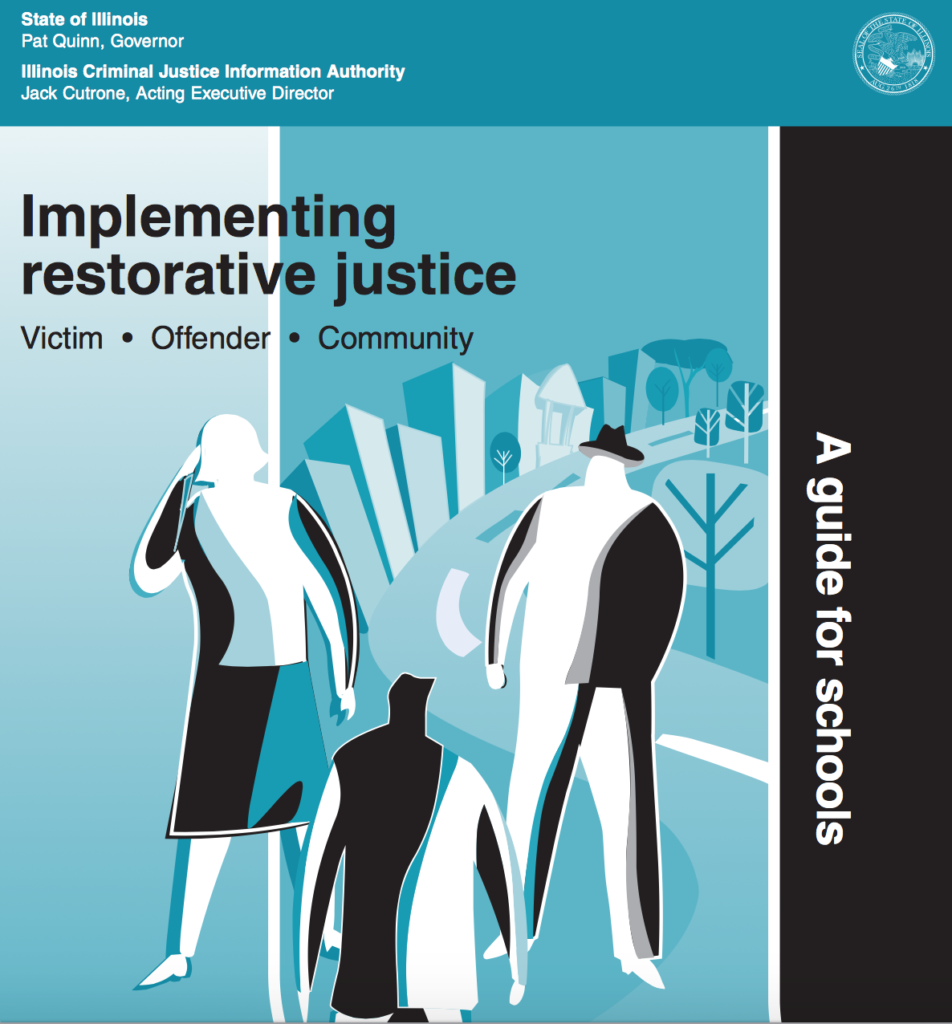
This guide was created by the Illinois Criminal Justice Information Authority for schools in the state of Illinois. It was designed to help school staff understand restorative practices, reduce the need for involvement of the juvenile justice system in school discipline, and create and maintain positive school-wide communities. The guide provides an excellent overview of… Read More ›
Teaching Restorative Practices with Classroom Circles
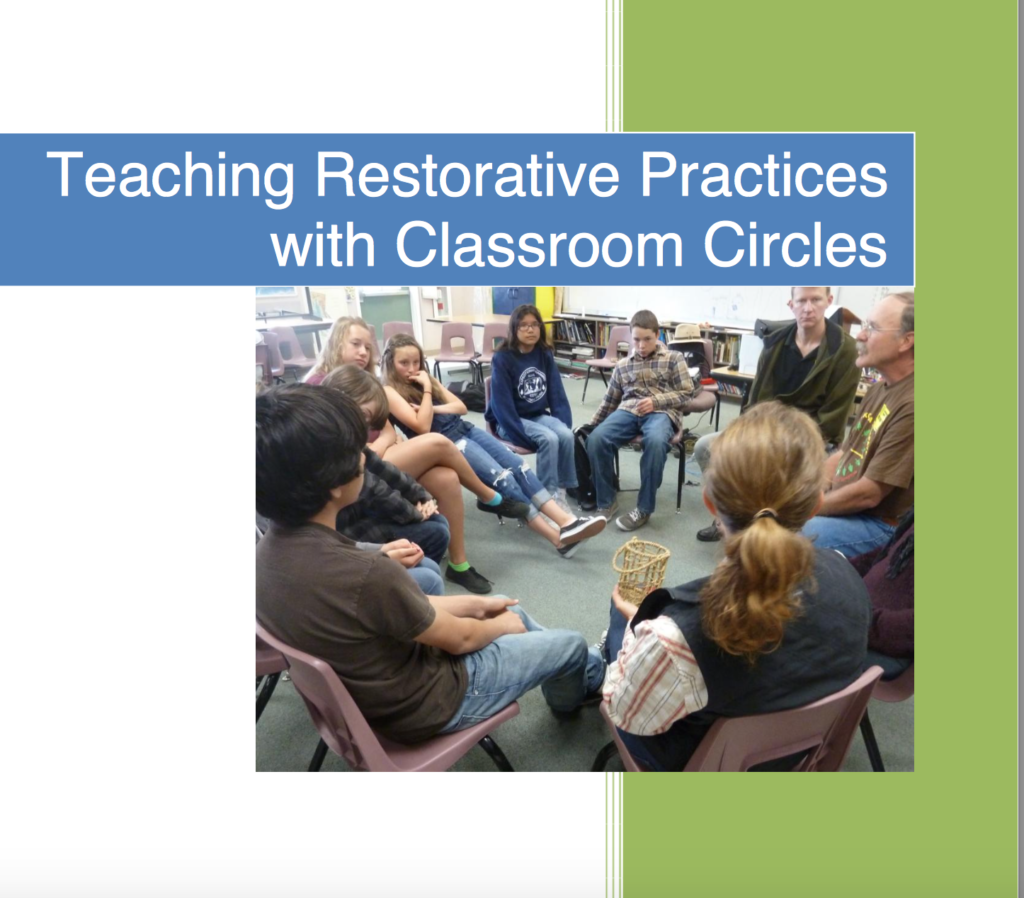
This guide was produced by the San Francisco Unified School District’s Student, Family, and Community Department, which works to achieve the district goals of Access and Equity, Student Achievement, and Accountability. This accessible guide provides an excellent overview of the restorative practice of classroom circles. It lays out in detail how to implement a variety… Read More ›
Community Engagement and Student-Centered Learning
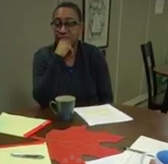
This video, which is a part of the Community Engagement series by Nellie Mae Education Foundation, discusses the many reasons why community engagement is so vital to successful student-centered learning. Source Organization: Nellie Mae Education Foundation
Recognizing the Importance of Support Staff in a Student-Centered School

Student support staff (school counselors, case managers, mentors, social workers etc.) are rarely central to education reform conversations, but in the era of personalization, their knowledge and expertise can greatly benefit the changing classroom. Students and teachers can rely on these staff to bridge social/emotional strategies with academic learning. Emotions, research shows, direct students’ learning… Read More ›